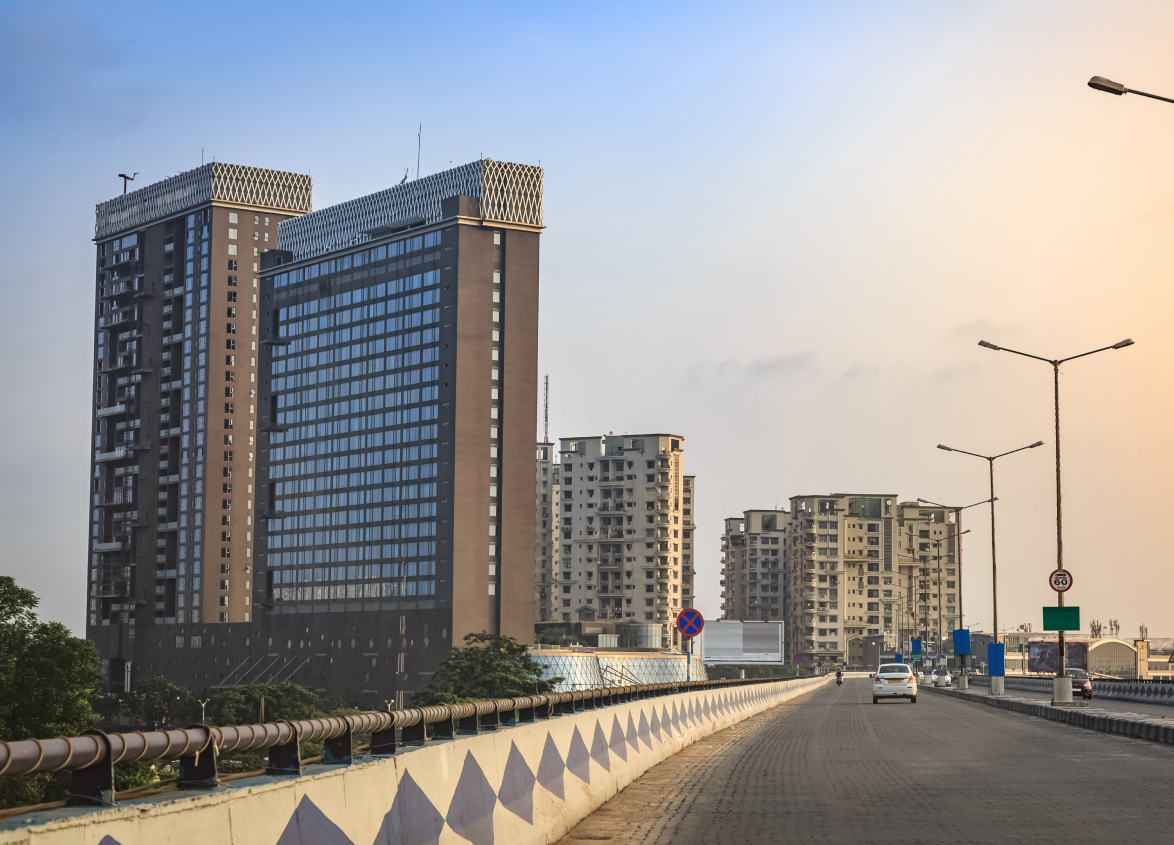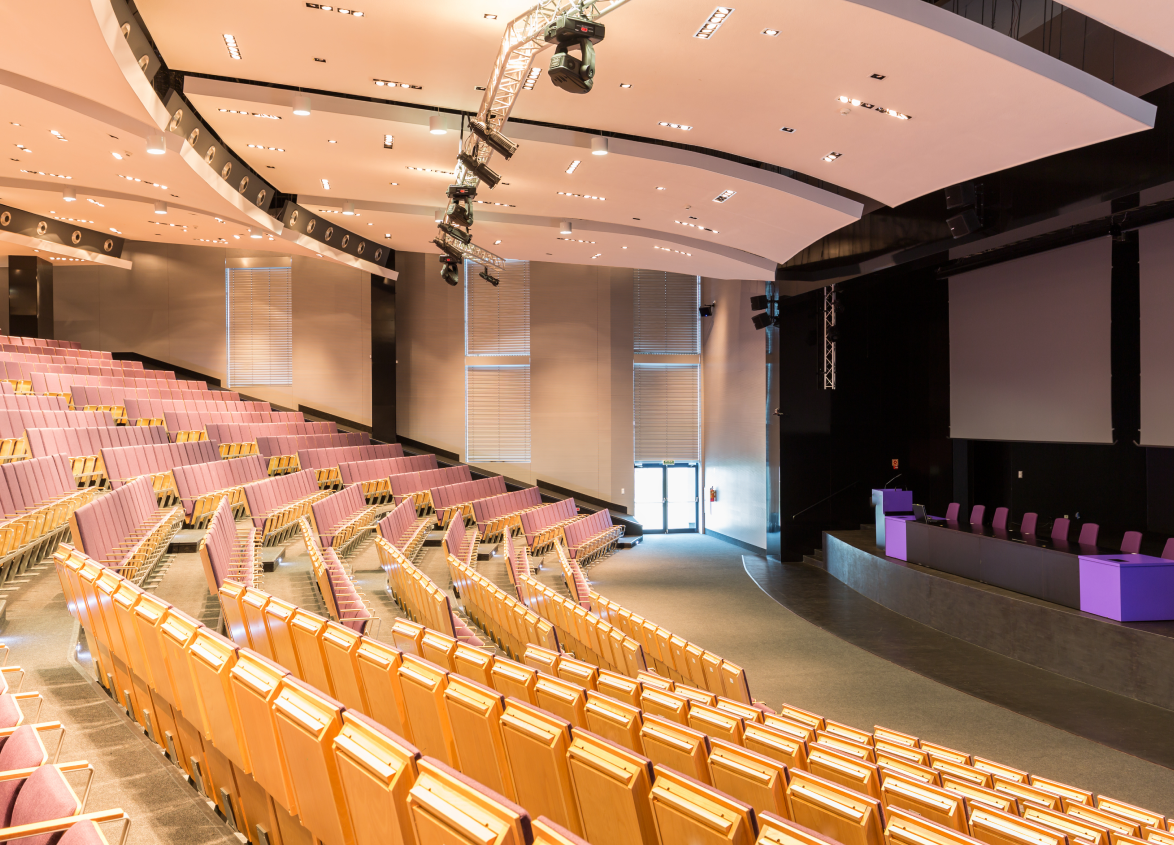
Residential
The Role of Homeowner Associations in Residential Communities
September 19, 2024
When homeowners search for the perfect house, they are looking for an architectural structure and a community they can join. A homeowners' association (HOA) governs the residents in many communities. HOAs have become vital to the real estate industry, especially in planned communities. Since more homebuyers prefer the ease and benefits of living in these gated communities, it is essential to clarify how HOAs work before investing in them or buying a home.
What are homeowners associations (HOAs), and how do they work?
In recent years, homeowner associations have become increasingly prevalent. An HOA is a group that makes and enforces rules for a neighbourhood, condo building or planned community. A board of directors runs the group and then collects fees from residents for maintaining shared areas and facilities.
You immediately become a member once you buy a property in an HOA area. While some HOAs have strict rules regarding what you can do with your property, others tend to be more relaxed.
They are formed within neighbourhoods of single-family homes, communities or multiple-unit buildings like townhomes or condominiums. Residents of the community run the HOAs. A membership is required if you wish to buy a home within a community where an HOA has been established.
These groups are elected to manage and enforce the rules of the HOA. The rules of HOA are written in a document called the Declaration of Convents, Conditions and Restrictions (CC&Rs). It creates an outline of what you can do and what you cannot do.
Importance of HOAs in Community Development
Developers establish homeowner associations to manage communities and ensure their long-term viability effectively. Such associations play a vital role in governing the community and collecting fees for maintenance and upkeep. They also help establish HOA rules and regulations for maintaining a certain living standard.
What is the purpose of an HOA?
Property owners can get frustrated when dealing with the rules and dues of HOA. But they tend to play significant purposes like:
- Protect and enhance property values
- Promote a clean and safe environment
- Maintain shared community spaces and property
- Foster a sense of belonging among residents
- Ensure a certain quality of life
- Oversee community resources
How are homeowners associations formed?
The first thing that needs to be done to create a residential HOA is to establish a legal entity of an LLC or a nonprofit corporation. You have to submit the LLC Articles of Organization in the case of an LLC and the Articles of Incorporation in the case of a nonprofit organization. The next step for an HOA is to create Covenants, Conditions, and Restrictions (CC&Rs) rules.
These include explaining what homeowners should follow and how the HOA will operate. It should also contain details on how these rules will be updated. Apart from this, an HOA might develop other documents, like Corporate Bylaws, which contain details on how meetings are conducted, how voting works, and how board members get elected.
What are HOA fees and how much are they?
The management of homeowner associations requires funds. Residents have to pay monthly or annual charges that the association will recover. These fees cover the joint facility, common property, and all other common areas within the society. The detailed services HOAs provide are also different from one community to another, but the following are typical.What Should You Consider When Choosing the Right Home Within an HOA?
Comparing rules and the facilities of every association is relatively simple to identify the best match. Specifically, it is required to read through the HOA rules, namely the Covenants, Conditions, and Restrictions (CC&Rs). This will help you know what is included and excluded and the limitations that are likely to be placed on the coverage.
The due of the property depends on these factors:
- Property size and type
- Total number of properties in the HOA
- Community and property location
- Operating expenses
What do HOA fees cover?
Some of the essential costs that are covered by HOA fees:
- Municipal Services: This involves the cost of water and wastewater services, trash removal, and security.
- Maintenance and Repairs: Fees include maintenance and repair of parking lots and other neighborhood roads, lawns, pest control, common area maintenance, and snow clearance in parking lots and other common areas.
- Reserve Funds: Some fees are set aside for purposes such as addressing massive disasters or replacing equipment.
- Amenities and Services: HOAs may include amenities like gyms, swimming pools, and security facilities, including gates and security cameras. They may also cover services like valet parking and concierge services, which may attract higher charges.
HOA rules and regulations
Some of the standard rules and regulations that are imposed by homeowners associations (HOAs):
- Home appearance: HOAs control the appearance of homes, including choosing the paint colour and types of roofing materials. Thus, they limit all the changes you can make to the house's exterior.
- Noise: HOAs may set noise limitations, such as restricting loud music at certain times of the day.
- Parking and street use: HOAs regulate where and how many cars you can have. They may also control street usage, for instance, by prohibiting parking on certain days of the week.
- Renting: Homeowner management companies also set policies that allow homeowners to rent their properties only for a certain period of time, and the number of properties allowed to be rented is limited.
- Yard sale: HOAs often expect you to keep the trees properly trimmed, the lawn mowed and the yard free of clutter. Rules can also be applied regarding the kinds of plants and flowers you can have.
- Pets: Most HOAs regulate the number of pets one is allowed to keep or have within the compound. They also might have restrictions as to where your pets can go.
- Fire safety: HOAs may also have specific fire safety rules, such as the type of smoke detector you must install and how to dispose of flammable items.
- Pool and recreation: Policies governing the use of community pools and recreation will be established, such as the number of guests allowed and the use time.
- Trash and waste: Some standard rules in HOAs include setting specific rules on how and when trash should be disposed of, the days for pick-ups and a ban on accumulating large items in the front yard.
- Financial management: There are also rules that HOAs have in terms of managing their affairs, such as where the investment is to be done or where the budget is to be approved and other aspects of fair housing laws appear.
Pros of homeowners associations
Residents in HOAs can enjoy some of these benefits for Homeowners associations. Here are some of the pros of HOAs:
- Property values: Maintaining a certain community standard helps maintain and increase property values.
- Amenities: HOAs offer access to several amenities, such as recreation areas, clubhouses, and swimming pools, designed to enhance the quality of life of residents.
- Community aesthetics: HOAs enhance the appearance of homes and properties, thus improving the community's overall look.
- Safety: They enforce essential safety rules like fire safety to safeguard their residences and homes.
- Maintenance: HOAs tactfully handle tasks like park upkeep, lawn mowing, and road repairs, saving homeowners time and money.
- Mediation: They also help resolve disputes between neighbors, so people do not have to waste time or money going to court.
- Consistency: HOAs ensure that every homeowner follows similar rules, promoting fairness and a sense of community.
Cons of Homeowners Associations
It is crucial to carefully weigh the pros and cons of HOAs before buying into a community governed by one. Some of the cons you need to consider:
- HOAs tend to impose strict rules that limit personal freedom and individuality. Regular and special assessments can make them quite expensive.
- When rules are enforced too strictly, conflicts can quickly arise.
- They are often inflexible, as they do not try to adjust their rules to meet residents' changing needs.
- Small boards make decisions without involving residents, which shows a lack of transparency.
- The decision-making process can be slow and bureaucratic.
- They can be costly due to regular payments and fees for shared amenities.
Future Trends in HOAs in India
Several trends are shaping how HOAs operate. Let’s explore these trends and understand what they might mean for community living:
- Community engagement: HOAs are hosting more workshops, community events, and social gatherings. More shared spaces like community cafes and work areas are becoming popular.
- Embracing technology: Technology plays a vital role in HOAs. Many use software to communicate with residential HOAs, manage dues, schedule amenities, and even hold virtual meetings.
- Sustainable practices: Since sustainability is becoming a key focus, more HOAs are adopting eco-friendly practices like installing solar panels, creating community gardens, and using water-saving landscapes.
- Flexible rules and regulations: HOAs closely review their rules to ensure they fit the modern lifestyle of homeowners. This includes more flexible policies on home business, property changes, and pet ownership. They aim to maintain community standards while adapting to the needs of residents.
- Ageing population: As the population ages, HOAs make necessary adjustments, such as designing age-friendly spaces, adding accessible amenities, and offering services to help seniors live independently.
- Financial transparency: There is a rising demand for financial transparency in HOAs. Residents are eager to learn how their fees are spent, leading to more open financial reporting and involvement in budgeting decisions.
- Improved security: Security measures are getting more advanced. In addition to security staff and gated entrances, they also prioritize digital security like surveillance cameras and intelligent access systems.
- Legal and regulatory changes: HOAs face a complex legal landscape with changing state and federal regulations. This includes complying with fair housing laws, data privacy rules, and emergency response protocols.
- Diverse communities: Diversity and inclusion are given higher priorities. HOA management promotes communities that welcome people from different backgrounds, cultures, and family structures.
Conclusion
Homebuyers and investors will be able to make a more informed decision once they understand the role of HOA management in the real estate industry. Investors and homeowners should stay informed of what they are investing in. HOAs offer several benefits, like property maintenance and community amenities. However, they also have drawbacks, like loss of autonomy and financial obligations.
Brigade Group can assist in this area by providing clear information about the HOAs associated with their properties. They offer guidance on the benefits and obligations of HOA membership, helping buyers and investors understand what to expect. Brigade Group ensures that potential homeowners and investors are well-informed about how an HOA might impact their living experience and investment. This transparency helps in making a more confident and educated decision.
FAQs
1. What is a Homeowners’ Association (HOA)?
A Homeowners’ Association (HOA) is a private organisation that property developers set up to create and enforce land-use rules. It is also known as the Property Owners Association (POA). An HOA is designed to help you market and sell properties for its members. When a person buys a property with an HOA, they automatically become an HOA member. This means they need to follow the rules and pay HOA fees.
2. Are Homeowners’ Associations mandatory in India?
Homeowners’ Associations in India are not required by law. Many neighbourhoods choose to create them to manage and improve community life. Most homeowners usually agree that a homeowner management company is beneficial.
3. How is an HOA formed and registered in India?
An HOA in India is formed by preparing key documents. These include the Declaration of Covenants, Conditions and Restrictions (CC&R) and Bylaws. Since these documents are ready, the HOA can be registered. The registration follows legal rules set by local authorities.
4. What are the typical responsibilities of HOA members?
Typical responsibilities of HOA members include:
- Paying HOA fees: Members must regularly pay fees to fund the upkeep of shared areas and services.
- Following community rules: Members need to adhere to the rules set by the HOA, such as property maintenance standards and guidelines for noise or pets.
- Participating: Members often attend meetings to discuss community issues, vote on important matters, and stay informed about HOA decisions.
- Serving on committees: Some members may volunteer to serve on HOA committees, helping to manage specific tasks like landscaping or social events.
- Maintaining property: Members are usually required to keep their properties well-maintained to ensure the community looks good and property values remain stable.
5. How are HOA fees determined and what do they cover?
HOA fees are set through a budgeting process conducted by the association. These fees include maintaining amenities, common areas, and other shared services. The amount of the fees depends on the community's needs and can vary with different residential complexes.
6. What is the role of the Board of Directors in an HOA?
Board members are volunteers chosen by other association members. They handle tasks such as managing finances, making and enforcing rules, and managing shared spaces.
7. How can disputes within an HOA be resolved?
Here is how disputes can be resolved within an HOA:
- Discussion: Members can talk directly to try to solve the issue.
- Mediation: A neutral third party can help both sides reach an agreement.
- Arbitration: An arbitrator listens to both sides and decides everyone must follow.
- Legal action: If the dispute can't be settled, it may go to court as a last resort.
Most HOAs prefer to resolve disputes through discussion or mediation to avoid legal complications.
8. Can an HOA enforce rules on property aesthetics?
Depending on the rules mentioned in the governing documents, an HOA can enforce rules on property aesthetics, including exterior modifications, landscaping, and architectural guidelines.
9. Can homeowners be involved in decision-making within the HOA?
Yes, homeowners can participate in HOA decision-making. They can attend meetings, vote on important issues, and join the Board of Directors or committees.
MUST READ
Looking for something specific?
We'd be delighted to help you.





















































































































































































































































































































































































































